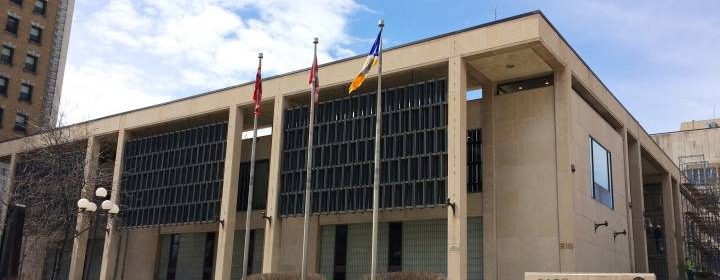City of Winnipeg further expands active transportation routes through coronavirus

The City of Winnipeg is adding more temporary bicycle and active transportation routes across the city through the novel coronavirus pandemic.
Late last month city officials announced it would be expanding the routes in an effort to help with social distancing requirements during COVID-19.
On Friday the city added five more streets to the list and extended the temporary closures to vehicular traffic until May 29.
“As the global pandemic continues to have an effect on our residents, I’m pleased to see an expansion of active transportation routes that can better facilitate physical distancing,” said Mayor Brian Bowman in a release.
“With ever-evolving circumstances related to COVID-19, the City is once again demonstrating its willingness and ability to innovate.”
The streets now designated as active transportation routes include:
- Lyndale Drive – Cromwell Street to Gauvin Street
- Scotia Street – Anderson Avenue (at St. Cross Street) to Armstrong Avenue
- Wellington Crescent – Academy Road (at Wellington Crescent) to Guelph Street
- Wolseley Avenue – Raglan Road to Maryland Street
- Assiniboine Avenue – Bedson Street to Westwood Drive
- Churchill Drive – Hay Street to Jubilee Avenue
- Egerton Road – Bank Avenue to Morier Avenue
- Kildonan Drive – Helmsdale Avenue to Rossmere Crescent & Larchdale Crescent to Irving Place
- Kilkenny Drive – Burgess Avenue to Patricia Avenue and Kings Drive
Questions about COVID-19? Here are some things you need to know:
Health officials caution against all international travel. Returning travellers are legally obligated to self-isolate for 14 days, beginning March 26, in case they develop symptoms and to prevent spreading the virus to others. Some provinces and territories have also implemented additional recommendations or enforcement measures to ensure those returning to the area self-isolate.
Symptoms can include fever, cough and difficulty breathing — very similar to a cold or flu. Some people can develop a more severe illness. People most at risk of this include older adults and people with severe chronic medical conditions like heart, lung or kidney disease. If you develop symptoms, contact public health authorities.
To prevent the virus from spreading, experts recommend frequent handwashing and coughing into your sleeve. They also recommend minimizing contact with others, staying home as much as possible and maintaining a distance of two metres from other people if you go out.
For full COVID-19 coverage from Global News, click here.
Source: Read Full Article